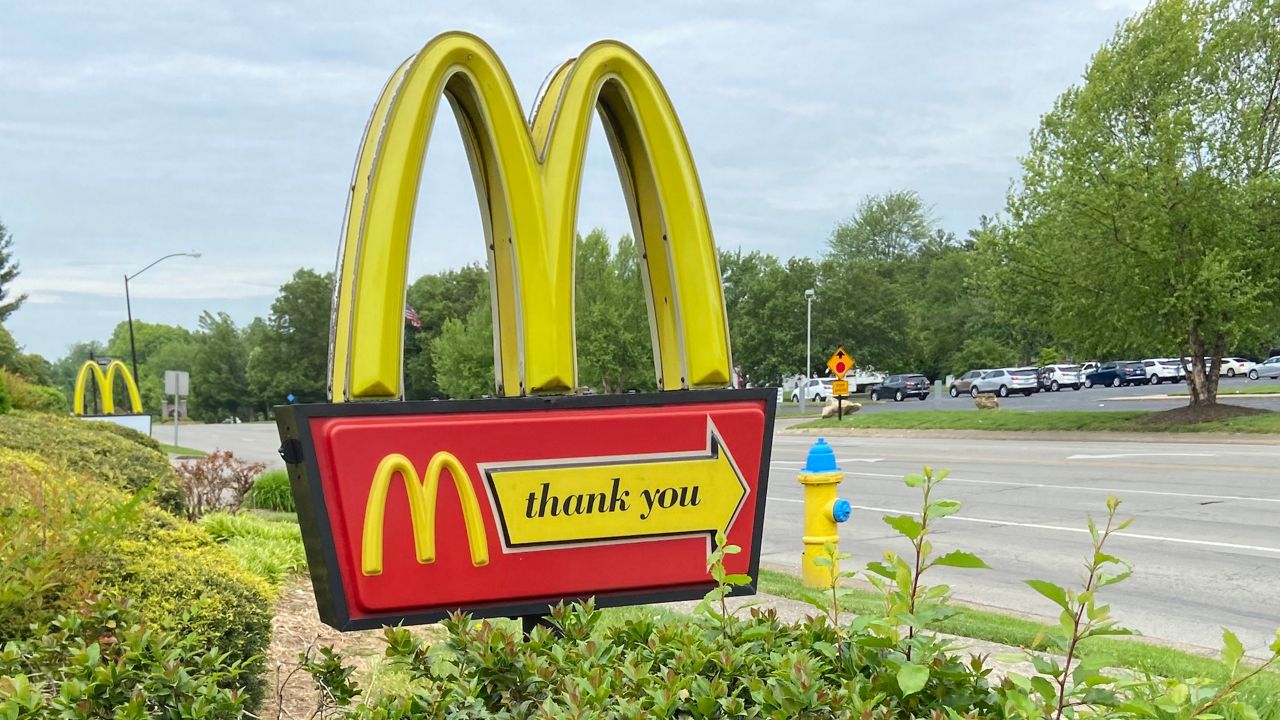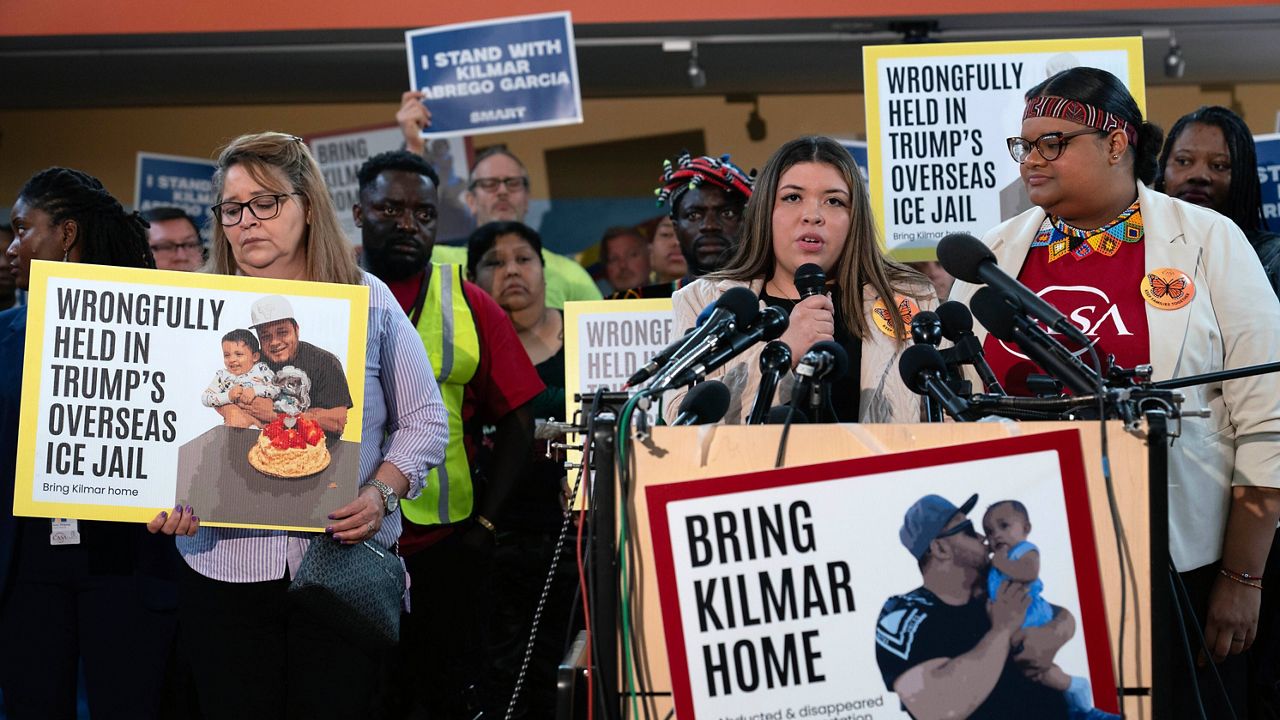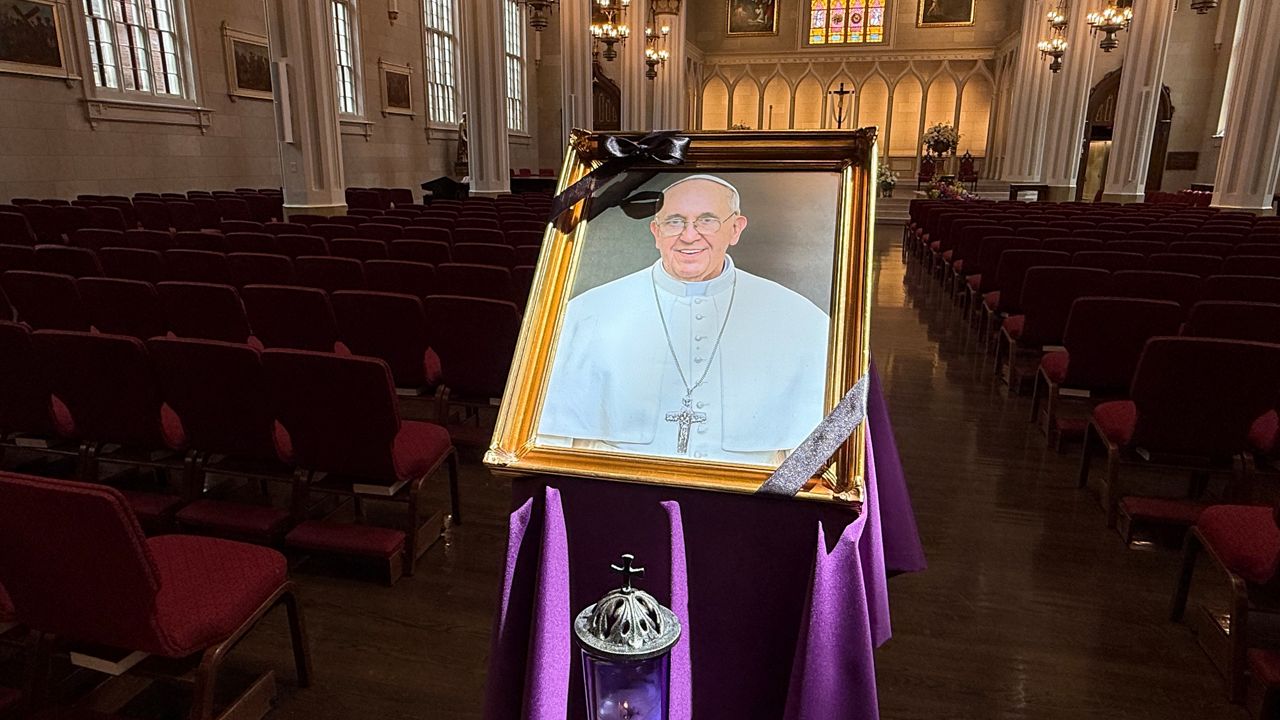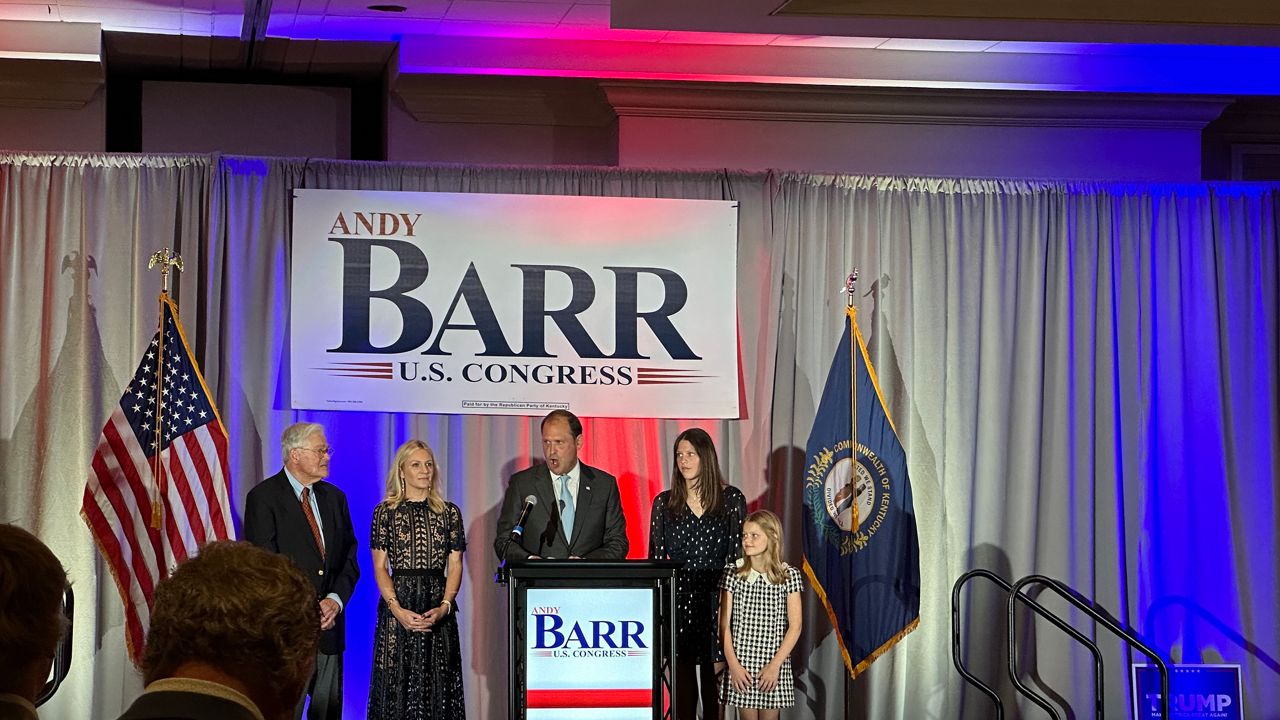LOUISVILLE, Ky. — Workers at more than a dozen McDonald’s restaurants across the country walked off the job Wednesday to demand higher wages from the fast food giant.
While actions took place just across the border in Indiana and Tennessee, there were no strikes in Kentucky, which has more McDonald’s per capita than all but two states, according to a 2018 study.
Still, there’s little doubt that increasing wages for McDonald’s workers to $15-an-hour, the primary demand made by striking workers, would benefit employees in the commonwealth, said Jason Bailey, Executive Director of the Kentucky Center for Economic Policy.
“Wages and working conditions in the restaurant industry, especially fast food, are notoriously poor,” he said, adding that raises would help both workers and the state as a whole. “Better wages will improve economic security and stimulate demand in the economy.”
The May 19 McDonald’s strike comes a week after the company announced plans to increase wages by an average 10% at 650 corporate-owned stores across the country. “Our first value is taking care of our people, and today we are rewarding our hardworking employees in McDonald-owned restaurants for serving our communities,” Joe Erlinger, President McDonald’s USA, said in a statement.
But the majority of McDonald’s restaurants in the U.S., a full 95% of the 14,000 locations, are owned by franchisees. Organizers with Fight for $15, a group pushing for higher service industry wages, are calling on McDonald's to raise the wages of all who work below the golden arches.
“McDonald’s could decide today to pay every worker $15-an-hour,” Mary Kay Henry, international president of the Service Employees International Union (SEIU), said in a livestream Wednesday. She called the plan to raise wages for only those workers at corporate-owned stores “sad” and “completely unacceptable.”
“Frankly, it’s an insult,” she said.
In a letter to employees last week, Erlinger called on franchisees to follow corporate’s lead and boost worker wages. “We encourage all our owner/operators to make this same commitment to their restaurant teams in ways that make the most sense for their community, their people and their long-term growth,” he wrote.
In a statement provided to Spectrum News 1, Mark Salebra, National Franchisee Leadership Alliance Chair, said franchisees "are leading an effort to implement an enhanced Employee Value Proposition," which includes suggested "best practices on pay and benefits that independent owner/operators can implement however they deem appropriate."
Two McDonald’s workers outside a Louisville restaurant Wednesday said they're aware of the strikes and confirmed that their restaurant is one of the thousands of franchisee-owned locations. They declined to say if they agreed with the goals of those striking.
One Kentuckian, who did weigh in on the story, is former Democratic State Rep. Charles Booker, a likely candidate for U.S. Senate next year. In a tweet, Booker wrote, “I’m standing in solidarity with McDonald’s workers across the nation striking for livable wages. If you can pay your CEO $10 million, then pay your workers what they deserve.”
McDonald’s CEO Chris Kempczinski was actually awarded $10.8 million in total compensation in 2020, according to SEC filings.
Backers of McDonald’s workers have pointed to that figure and the company’s 2020 profits to make the case for a wage increase. Despite the pandemic, McDonald’s brought in $4.7 billion in profits in 2020. More than $3.7 billion of that was paid out in dividends to shareholders.








